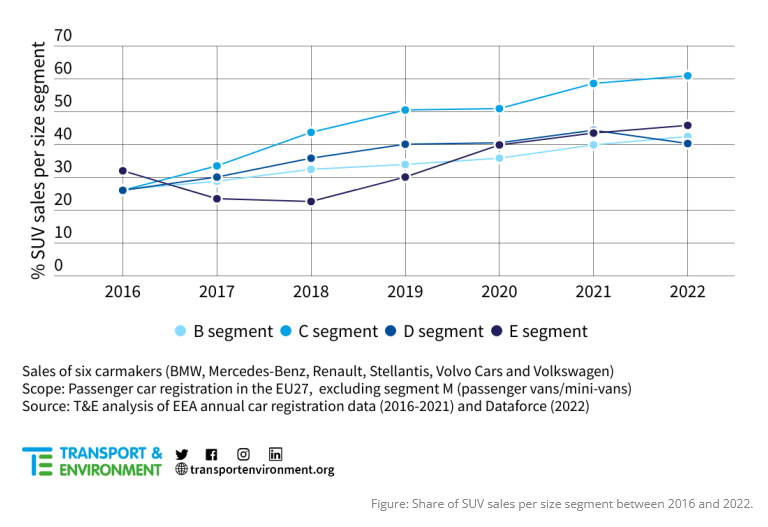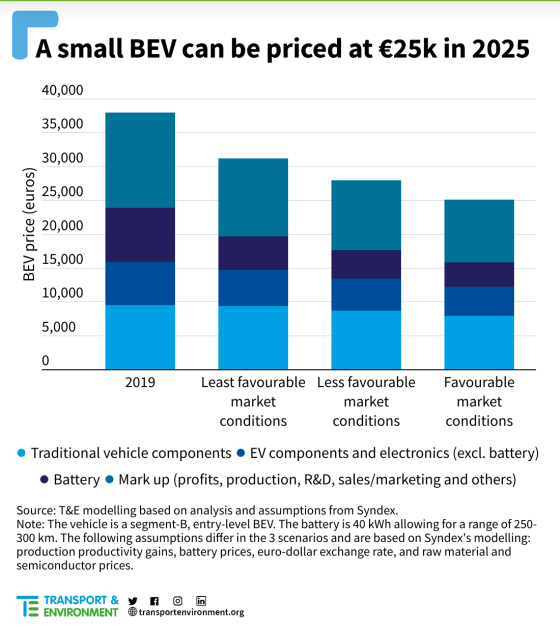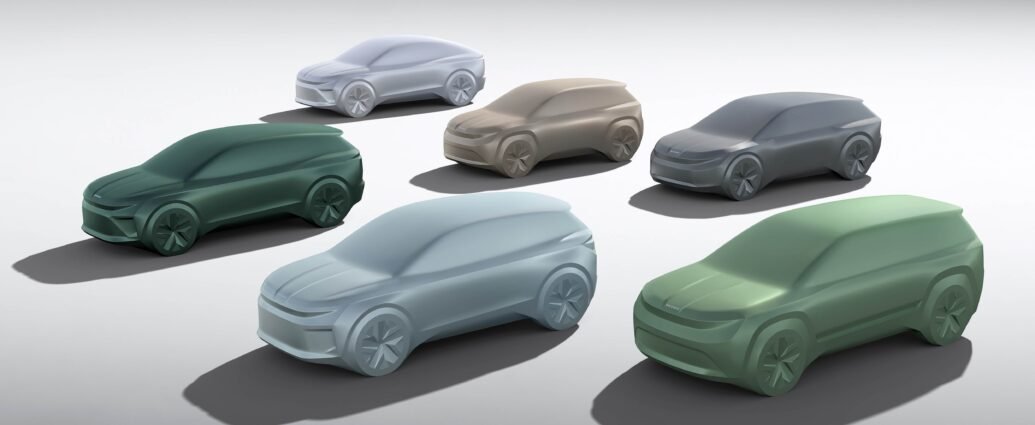Carmakers are focusing on making and selling bigger SUVs and electric SUVs instead of more affordable, smaller electric vehicles (EVs). Smaller EVs would be cheaper and use less of the critical raw materials needed to make batteries. This would make it easier for people on lower incomes to buy EVs and help countries reach net zero faster.
A recent survey in UK showed that more people would buy electric cars if there were more affordable, smaller models available. When given the option of a small £21,000 electric car, the share of new car buyers willing to buy a battery electric model increased from 22% to 30%.

New research from Transport & Environment has revealed that carmakers can sell small electric cars made in Europe for £21,000 while still making a profit. Falling production costs and battery prices would make mass market “B-segment” vehicles feasible to electrify by 2025.
However, the big six European carmakers have abandoned small affordable cars in pursuit of profits that have grown far faster than inflation, with one, Volvo, committing to only selling SUVs in the UK going forward.

This trend among carmakers is alarming because larger SUVs have higher embedded emissions (the emissions associated with producing the vehicle) and require more energy to operate, which puts a strain on the electricity grid.

It is important to note that electric vehicles are still a much better option for the environment than gas-powered vehicles, but the trend towards larger, heavier EVs could undermine some of the environmental benefits of electric transportation.
To address this trend, policymakers could implement policies that encourage the production and sale of smaller, more affordable EVs. For example, they could offer subsidies or tax breaks for smaller EVs, or they could implement regulations that limit the size and weight of electric vehicles.
Reference- Clean Technica, Transport & Environment Survey, Popular Mechanics, Inside EVs, Top Gear






